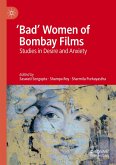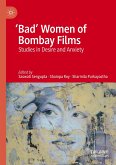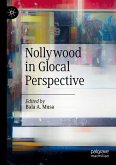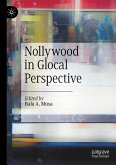This book examines the circulation and viewership of Bollywood films and filmi modernity in Bangladesh. The writer poses a number of fundamental questions: what it means to be a Bangladeshi in South Asia, what it means to be a Bangladeshi fan of Hindi film, and how popular film reflects power relations in South Asia. The writer argues that partition has resulted in India holding hegemonic power over all of South Asia's nation-states at the political, economic, and military levels-a situation that has made possible its cultural hegemony. The book draws on relevant literature from anthropology, sociology, film, media, communication, and cultural studies to explore the concepts of hegemony, circulation, viewership, cultural taste, and South Asian cultural history and politics.
Bitte wählen Sie Ihr Anliegen aus.
Rechnungen
Retourenschein anfordern
Bestellstatus
Storno








